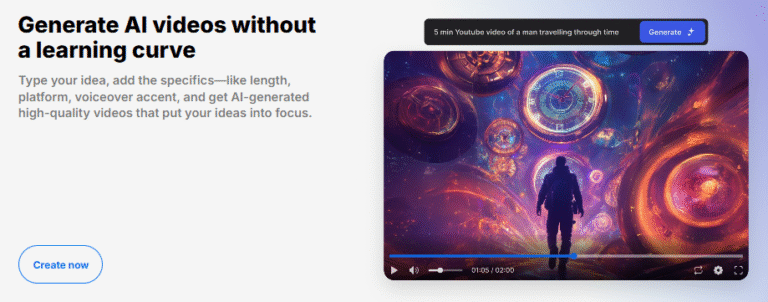How to Build a Book Summarize Agent with ElevenLabs
In this article, we will walk you through step-by-step instructions on building a powerful book summarization agent using ElevenLabs (11 Labs) ’ speech synthesis and voice cloning features. Our method will help you design an automated agent capable of converting long-form book content into high-quality summaries, which it will then read aloud in a natural, human-sounding voice.
Introduction to Book Summarization Agents Powered by ElevenLabs
Book summarization agents leverage Natural Language Processing (NLP) to extract the most relevant concepts and topics from a book. Combining this with ElevenLabs’ ultra-realistic text-to-speech (TTS) and voice cloning capabilities, we can enhance the user experience by providing read-aloud summaries.
Why Choose ElevenLabs for Voice Integration?
When building a summarization agent, voice is crucial. ElevenLabs stands out due to its:
- Expressive and highly natural speech output
- Multi-language support for diverse audiences
- Flexible voice cloning for personal or brand-specific voices
- Easy-to-use API for programmatic control of speech generation
Key Steps to Building Your Book Summarization Agent
Below are the core steps you need to follow to build your book summarization agent successfully.
1. Extract Book Content Efficiently
Begin by extracting the raw text of your book. Whether it’s a PDF, EPUB, or TXT file, you can use a Python library like pdfminer.six or ebooklib to convert your book into machine-readable text. Ensure that the book’s chapters and sections remain intact to produce coherent chapter-by-chapter summaries.
2. Summarize the Book Using AI Models
Next, pass the extracted text into a summarization model. Consider using an advanced language model like GPT-4.5 or fine-tuning your own transformer-based model. Break the text into smaller chunks (e.g. per chapter) to:
- Avoid context overflow
- Achieve more targeted summaries
- Capture all critical information and themes
Your summarization prompt might look like this:
“Summarize this chapter into a concise, insightful summary under 500 words. Focus on the main themes, character arcs, and key plot points.“
3. Integrate ElevenLabs Voice Synthesis API
Once your summary is generated, use ElevenLabs’ Text-to-Speech (TTS) API to produce voice output. Here’s a simplified Python example:
pythonCopyEditimport requests
api_key = "YOUR_ELEVENLABS_API_KEY"
voice_id = "YOUR_VOICE_ID"
url = f"https://api.elevenlabs.io/v1/text-to-speech/{voice_id}"
data = {
"text": "Your summarized text goes here.",
"model_id": "eleven_monolingual_v1",
"voice_settings": {
"stability": 0.5,
"similarity_boost": 0.9
}
}
headers = {"xi-api-key": api_key}
response = requests.post(url, json=data, headers=headers)
with open("summary.mp3", "wb") as f:
f.write(response.content)
This will produce a high-quality MP3 file containing your read-aloud summary.
4. Implement Voice Cloning for Personalization
With ElevenLabs voice cloning, you can create a custom voice that matches you or someone else. Steps include:
- Record a clean voice sample.
- Upload the voice file in the ElevenLabs dashboard.
- Obtain the generated
voice_id. - Substitute this
voice_idin your API call.
By using a cloned voice, you can give the summaries a personal touch — perfect for content creators or audiobook producers who want a recognizable voice.
5. Develop an Interactive Application Interface
Wrap your agent in a user-friendly interface to allow users to:
- Upload a book file
- Input preferences (summary length, style, voice type)
- Download the audio summary
You can build this interface using frameworks like Streamlit or React.js for web apps.
Optimizing for Scalability and Efficiency
If you plan to process multiple books concurrently, implement:
- Asynchronous API calls for TTS
- Efficient caching of common voice outputs
- Pagination of text chunks for summary generation
This ensures the agent is responsive and scalable.

Enhancing Voice Output Quality
To achieve the most natural voice output:
- Adjust ElevenLabs voice settings (
stability,similarity_boost) - Enable emotion parameters to match the book’s tone
- Test different voices and accents to suit the genre
By leveraging ElevenLabs’ speech synthesis and voice cloning alongside a robust summarization model, you can craft a powerful, automated book summarization agent. Whether you aim to produce engaging audio summaries for readers, educators, or publishers, this approach enables exceptional scalability, personal branding, and accessibility.
With the strategies detailed above, you can streamline the process of turning any book into a professional, personalized audio summary, enhancing the reading experience for a wide array of audiences.




